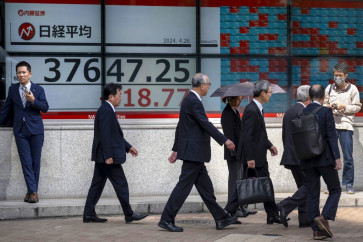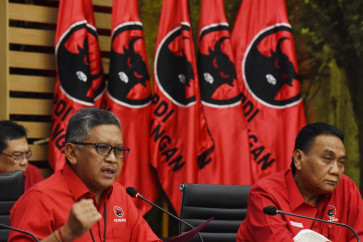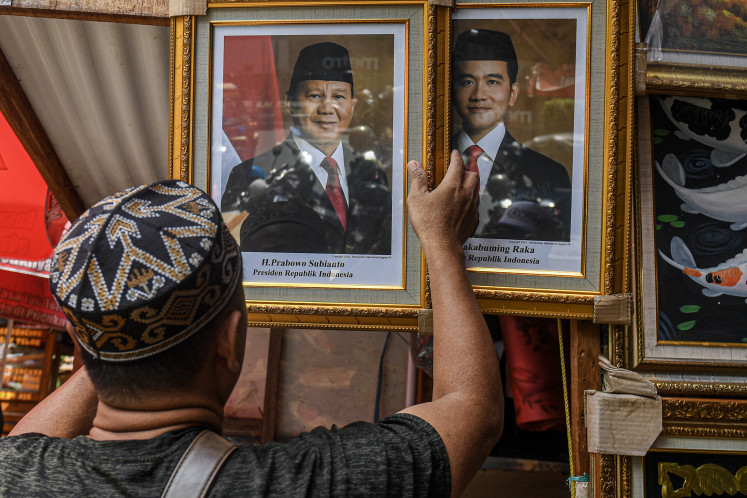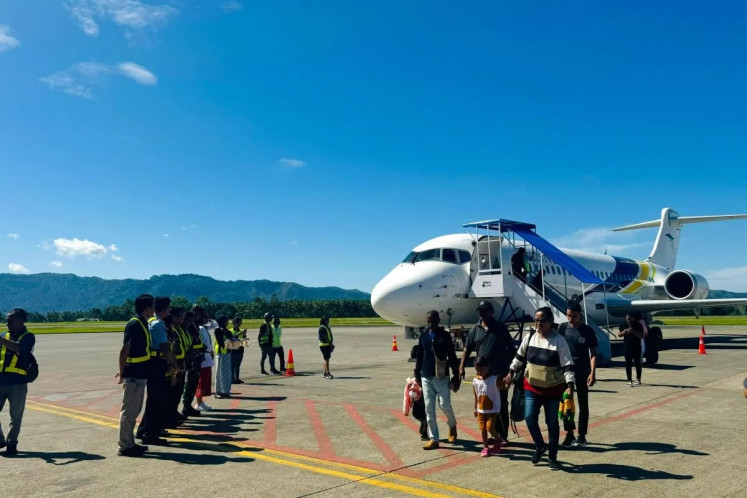Govt working on new plan for oil and gas contract extensions
Massive project: The mock-up of BP Indonesiaâs Tangguh expansion project is displayed at the 38th Indonesian Petroleum Association Convention & Exhibition at the Jakarta Convention Center in Senayan, Jakarta, on Thursday
Change Size
 Massive project: The mock-up of BP Indonesiaâs Tangguh expansion project is displayed at the 38th Indonesian Petroleum Association Convention & Exhibition at the Jakarta Convention Center in Senayan, Jakarta, on Thursday. (JP/Ricky Yudhistira) (JP/Ricky Yudhistira)
Massive project: The mock-up of BP Indonesiaâs Tangguh expansion project is displayed at the 38th Indonesian Petroleum Association Convention & Exhibition at the Jakarta Convention Center in Senayan, Jakarta, on Thursday. (JP/Ricky Yudhistira) (JP/Ricky Yudhistira)
M
span class="inline inline-none">Massive project: The mock-up of BP Indonesia's Tangguh expansion project is displayed at the 38th Indonesian Petroleum Association Convention & Exhibition at the Jakarta Convention Center in Senayan, Jakarta, on Thursday. (JP/Ricky Yudhistira)
The Energy and Mineral Resources Ministry has started working on a plan to formulate a more
acceptable regulation on the length of time it takes to determine if oil and gas field contracts can be extended.
Deputy Energy and Mineral Resources Minister Susilo Siswoutomo said in Jakarta on Thursday that his ministry was working on the regulation, although the plan had been unveiled back in 2012.
'We remain in the consultation period, just be patient. The most important thing is to maintain operation at expiring blocks. And at the same time, the government can get more [from the contract extension],' Susilo said on the sidelines of the 38th Indonesian Petroleum Association (IPA) Convention and Exhibition on Thursday.
Apart from maintaining production and being more beneficial for the government, according to Susilo, the regulation would also set a time limit for the authorities to decide whether to extend or terminate a contract.
Under the current regulation, oil and gas companies (production sharing contractors) are allowed to submit proposals for contract extension 10 years before expiry. However, there is no deadline for the decision over the proposal.
In a recent decision for the Siak block, operated by Chevron, the government announced its decision to terminate the contract and gave the block to state owned Pertamina on the date its contract expired.
Certainty for contract extension or termination is crucial for oil and gas contractors, who are running high-risk and capital-intensive businesses.
The decision should ideally be given several years before the contract expires to give companies certainty.
Indonesia, a former member of the Organization of Petroleum Exporting Countries, is moving eastward in its quest to find more oil and gas resources to offset declining production from its aging fields.
Despite its likely potential, the eastern region is seen to be a challenge given its lack of infrastructure and more complex geological topography, meaning companies need assurance that they will have enough contracted time to see returns on their initial investment.
Almost 635,000 barrels of oil equivalent per day (boepd) or 30 percent of the national oil and gas production comes from 20 companies whose production sharing contracts are due to expire in the next five years, IPA president Lukman Mahfoedz pointed out.
In addition, around 61 percent of the current national production of 1.2 million boepd comes from oil and gas companies whose contracts will expire in the next 10 years.
'Therefore, it is important to make a clear and transparent regulation regarding contract extension by considering the position of state-owned Pertamina as well as national and international oil and gas companies,' Lukman said.
Uncertainty in contract extension has affected the attractiveness of Indonesia as a destination for oil and gas investment Andrew Harwood, an analyst with energy think tank Wood Mackenzie, said.
'By leaving decisions right up to the very last minute, it doesn't help companies retain investment. For a mature block like Mahakam, it can be difficult to start reinvesting. Three years is probably ideal for companies,' Harwood said.
The contract of Mahakam block, which is operated by Total E&P Indonesia, will expire in 2017. But, the government has yet to decide whether or not the contract will be extended, leaving the operator in the dark about its future operation of the block.









